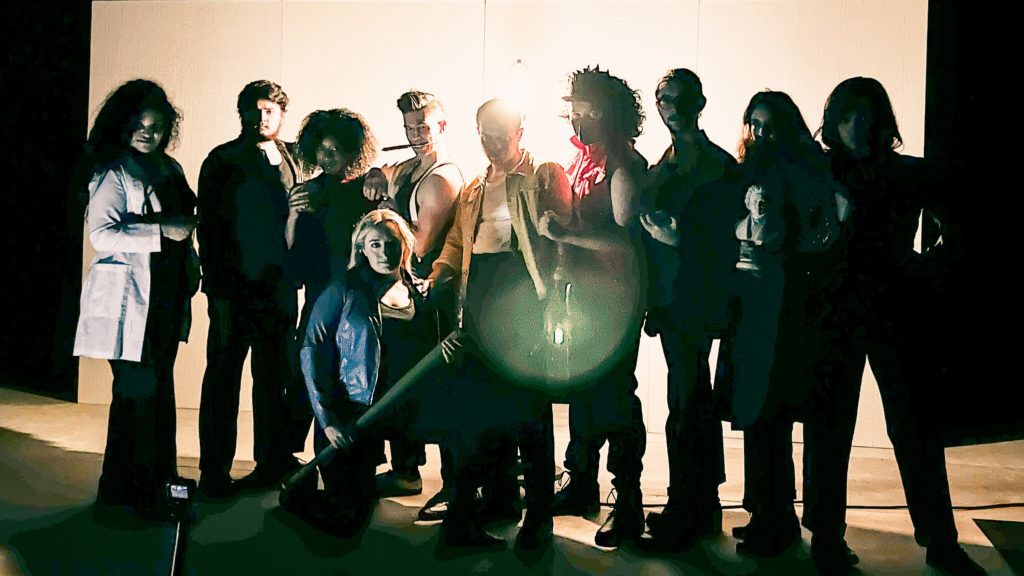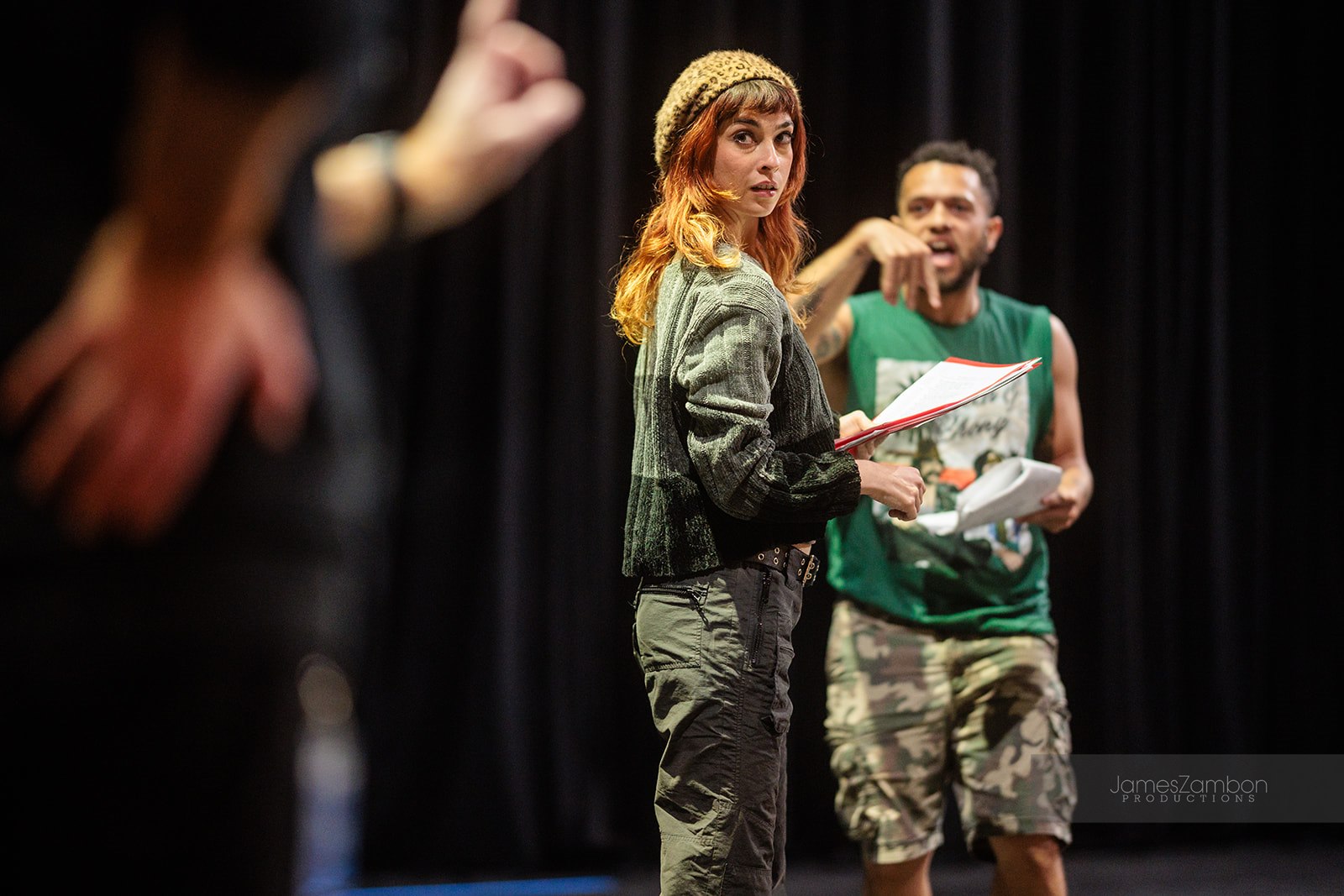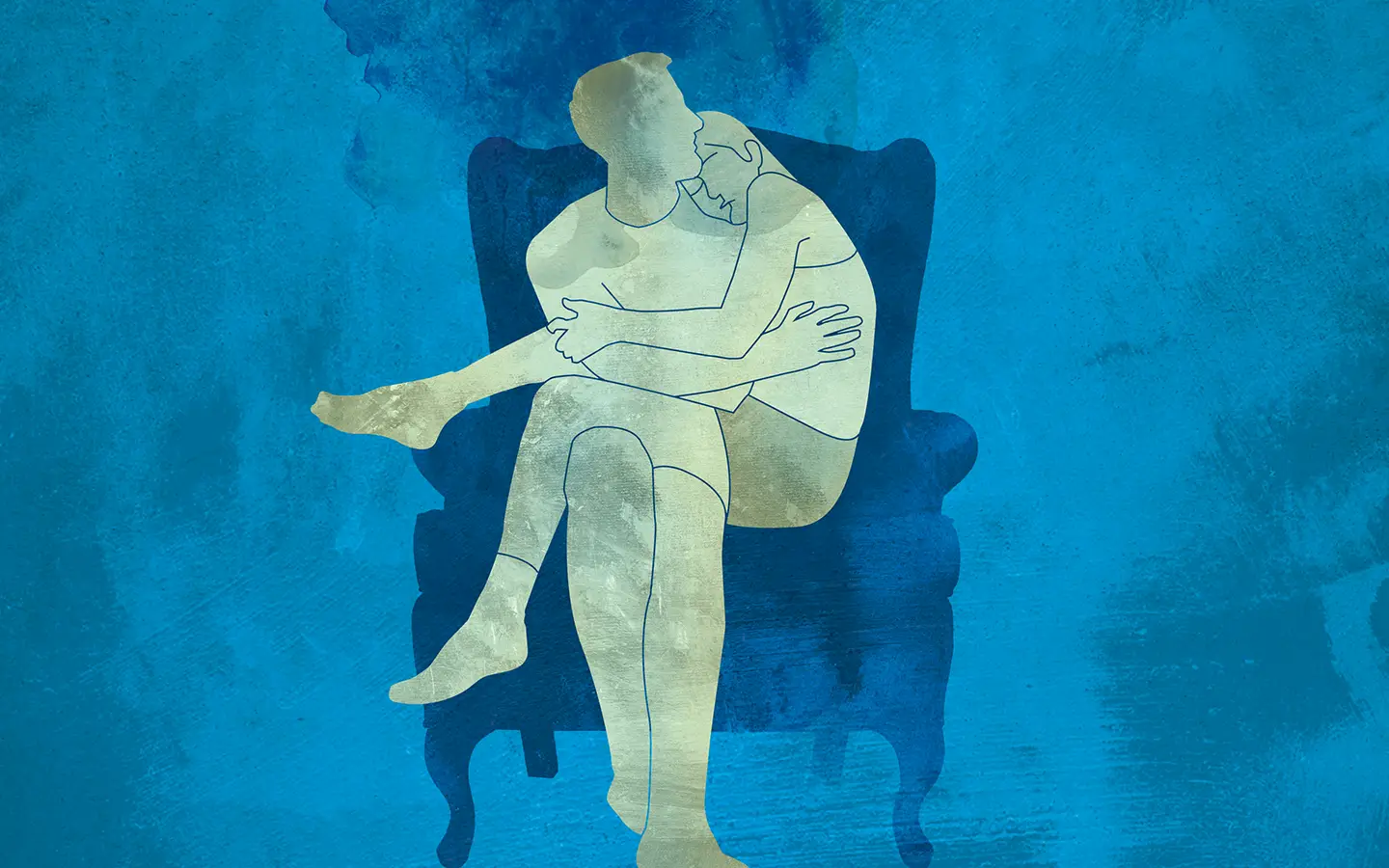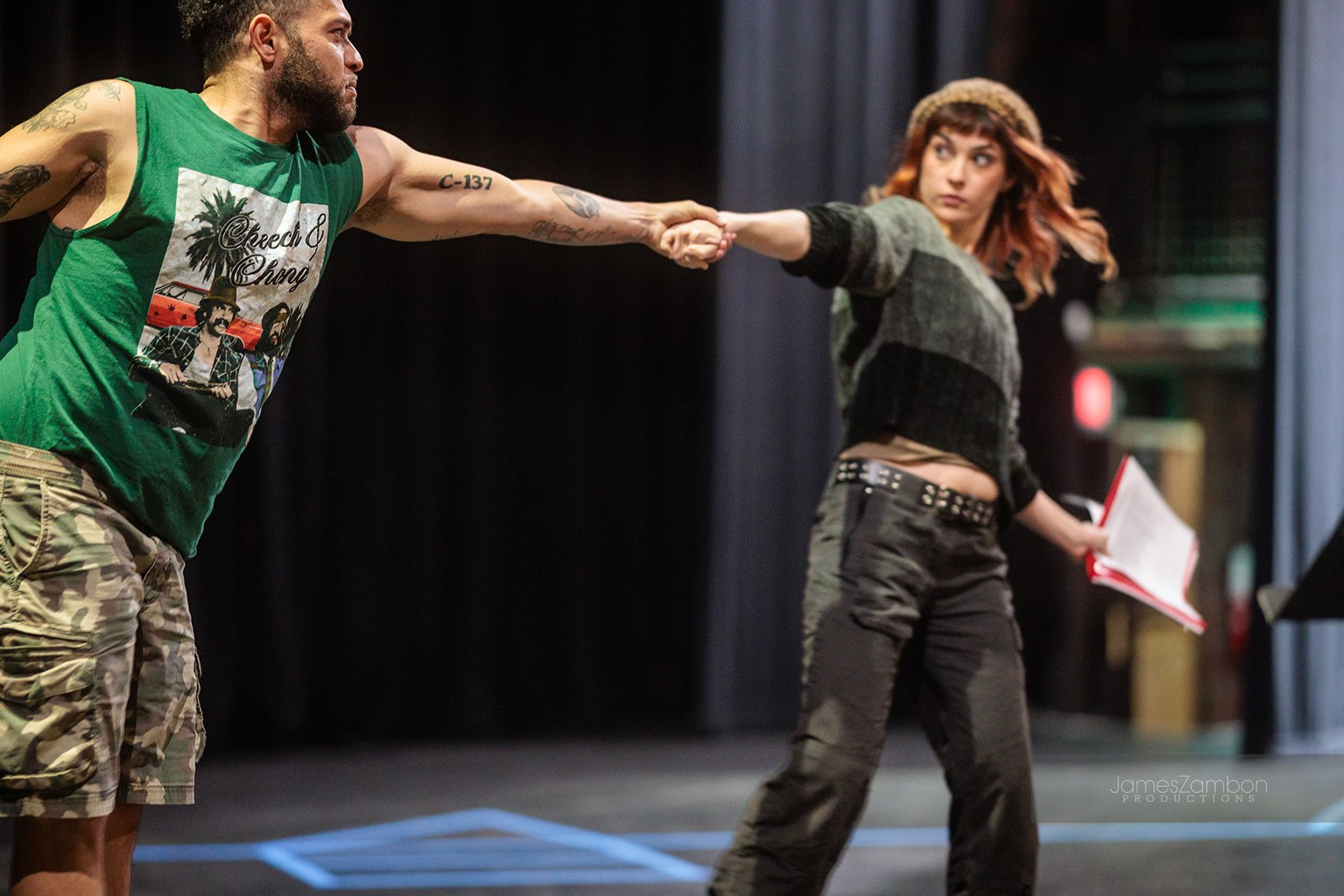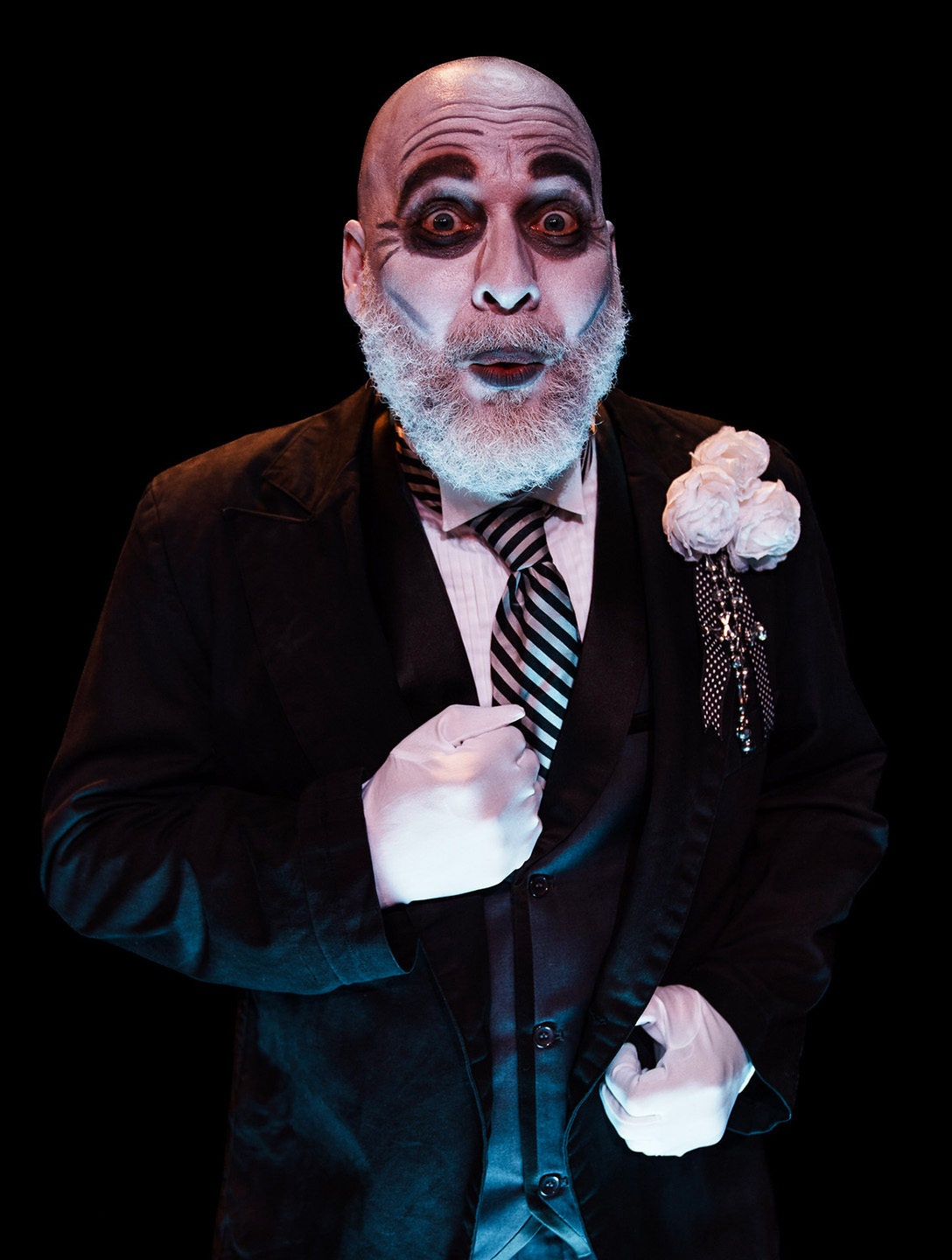 We got rid of paper programs as a matter of health and safety when we reopened in fall of 2020. To be honest, we don’t miss them because they are also an expense and produce a ton of waste (we also don’t believe that many people read them based on the questions we usually get, but that’s another story). We still offer programs online, like this one for A Clockwork Orange. It’s our hope maybe these even inspire someone to pick up a ticket who might not have otherwise.
We got rid of paper programs as a matter of health and safety when we reopened in fall of 2020. To be honest, we don’t miss them because they are also an expense and produce a ton of waste (we also don’t believe that many people read them based on the questions we usually get, but that’s another story). We still offer programs online, like this one for A Clockwork Orange. It’s our hope maybe these even inspire someone to pick up a ticket who might not have otherwise.
Take this insightful director’s note from D Granke, for instance. We think it offers a lot of insight into their vision of the work and the reasons behind the choices.
If you came tonight because you are a big fan of Kubrick’s film, it’s not too late to get out.
Anthony Burgess’ novel is in many ways wildly different from Kubrick’s film in tone, intent, and style and even different in terms of the end of the plot. Burgess was not a fan of the film, and deliberately takes a stab at Kubrick at the end of this adaptation. (Spoilers: that’s supposed to be him wandering on at the end in the bad fake beard as well as him on screen behind the cast) Kubrick made a realistic film that explores the shock of excessive violence. The purpose of the “ultra-violence” here is different. This play has more in common with the work of Brecht, or even a morality play like Everyman. The characters are broad, mostly nameless representations of the state or various ideological state apparatus (the church, the scientific establishment, the elderly, etc.) There is a great deal of comedy, and the goal isn’t to shock as much as it is to allow a detached audience to follow Alex’s journey in relation to growing up and becoming socialized. In many ways it is more like a different Kubrick movie: Dr. Strangelove. It is a darkly comic modern fable.
We are certainly not here to “preachify,” as Alex would say. However, it’s interesting to think on the threads in this piece that are still relevant to us 60 years on (the novel was published in 1962). The German Philosopher Immanuel Kant once wrote, “Out of the crooked wood of humanity nothing straight shall ever be built.” Kant presents this as a problem. What I say to this is: “well let’s build something perfectly crooked, jerkbag.” Burgess guides us this way as he questions whether our attempts at an externally imposed perfection somehow dehumanize us.
In America at this point we also need ask some serious questions about which bodies get to be violent, and when, and to ask why something is only appropriate when put to the uses of the state or other ideological institutions yet is to be shunned in our nature. In so many ways in the world of the play Alex is failed by and is used by everyone and everything from his family, to the government, to the “freedom fighters” planning to save him. The ensemble is relatively young, and represent a cross section of us. Seeing them gather to tell a story about old institutions failing them is something that should have resonance today. But, like I said, we hope it’s also very fun and entertaining – we aren’t here to preachify.
Enough govereeting. Profound lip shooms to you all. – D Granke

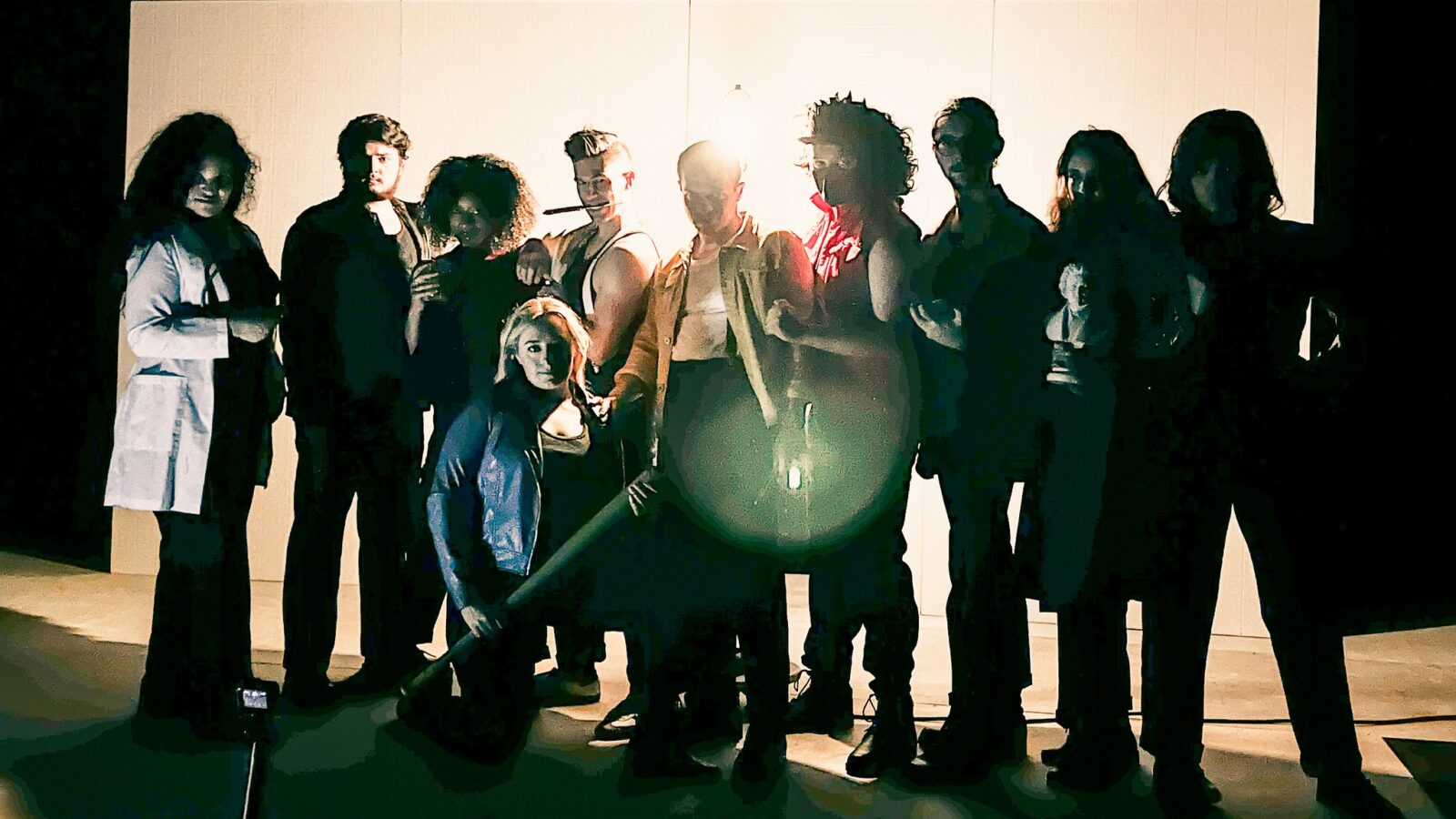
 If you came tonight because you are a big fan of Kubrick’s film, it’s not too late to get out.
If you came tonight because you are a big fan of Kubrick’s film, it’s not too late to get out. We are certainly not here to “preachify,” as Alex would say. However, it’s interesting to think on the threads in this piece that are still relevant to us 60 years on (the novel was published in 1962). The German Philosopher Immanuel Kant once wrote, “Out of the crooked wood of humanity nothing straight shall ever be built.” Kant presents this as a problem. What I say to this is: “well let’s build something perfectly crooked, jerkbag.” Burgess guides us this way as he questions whether our attempts at an externally imposed perfection somehow dehumanize us.
We are certainly not here to “preachify,” as Alex would say. However, it’s interesting to think on the threads in this piece that are still relevant to us 60 years on (the novel was published in 1962). The German Philosopher Immanuel Kant once wrote, “Out of the crooked wood of humanity nothing straight shall ever be built.” Kant presents this as a problem. What I say to this is: “well let’s build something perfectly crooked, jerkbag.” Burgess guides us this way as he questions whether our attempts at an externally imposed perfection somehow dehumanize us.